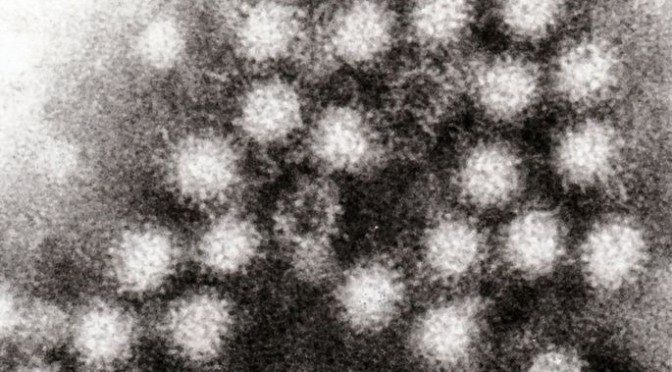Red wine, and in particular, resveratrol, has been implicated in some studies to be an effective anti-viral agent.
![Photo GrahamColm at en.wikipedia [GFDL (http://www.gnu.org/copyleft/fdl.html) or CC BY 3.0 (http://creativecommons.org/licenses/by/3.0)], from Wikimedia Commons](http://french-paradox.net/wp-content/uploads/2015/01/Norovirus_4-french-paradox-300x263.jpg)
Mouse and cat cells were exposed to either the mouse norovirus-1 or the cat calicivirus-F9, respectively.
Treatments for both mouse and cat cell exposed to the foodborne virus surrogates included: 1) red wine, 2) dealcoholized red wine, and 3) resveratrol from red wine.
After exposure to foodborne virus surrogates and treatment with either red wine, dealcoholized red wine, or resveratrol, percent toxicity/viability was measured and analyzed for all samples.
Important findings:
- Both red wine treatments and resveratrol treatments showed anti-viral activity against foodborne virus surrogates in both mouse and cat cells in a dose-dependent manner.
- Both red wine and resveratrol showed the greatest protection against foodborne virus surrogates during the early stages of infection, and were not as effective later on.
- Red wine and dealcoholized red wine showed similar protection against foodborne virus surrogates.
The results of this study indicate that red wine, regardless of alcohol content, showed protection against foodborne virus surrogates in both mouse and cat cells and was most effective during the early stages of infection. Resveratrol alone also showed similar protection

against foodborne virus.
More studies are needed in the human model, however these results show promise that having a glass of wine during a meal might help protect against foodborne virus, but if you’re already stricken with the illness, having a glass of wine during the worst of it probably won’t help you very much.
Source:

